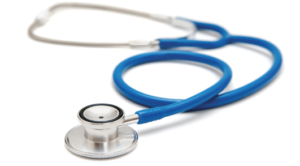Calls made for increased access to Hydroxyurea for sickle cell management in Ghana
 Stakeholders in the fight against sickle cell in the country have called for increased access to Hydroxyurea, a trademark drug for the management of the disease.
Stakeholders in the fight against sickle cell in the country have called for increased access to Hydroxyurea, a trademark drug for the management of the disease.
Hydroxyurea, (a medication for reducing anemia in sickle cell patients), has become the most accessible Sickle Cell solution on the Ghanaian market, aiding an exponential extension of the lifespan of patients.
This was after the Food and Drug Authority had approved it in 2018, and the Sickle Cell Foundation Ghana through the help of Novartis, a major drug manufacturer, placed the drug on free rollout for two years.
In 2022, the government placed the drug under the National Health Insurance Scheme (NHIS) coverage, however, the low rate of access to the drug due to cost and ignorance, is affecting progress towards reducing sickle cell anemia, especially in newborns.
The call was made by the stakeholders in a webinar jointly organised by the University of Health and Allied Sciences (UHAS), Fred Newton Binka School of Public Health, and the School of Medicine, as part of activities to mark this year’s World Sickle Cell Day.
It was on the theme: “Formalising Newborn Screening and Hydroxyurea and Knowing your Status.”
Dr Kokou Amegan-Aho, a Consultant Paediatrician Haematologist and the head of the School of Medicine’s Department of Paediatrics and Child Health, said the drug had been successful in the country despite the lack of market penetration.
He said because of the limited knowledge of the drug among doctors, most of them hardly prescribe it due to their lack expertise in such solutions and also the cost.
Hydroxyurea induces foetal haemoglobin production, improves cellular hydration and reduces cellular adhesion.
Dr Amegan-Aho said the drug had been very helpful in managing pain crisis among patients, reducing the number of blood transfusions, and proven to reverse some damage caused by the disease.
Hydroxyurea was safe and lingering evidence of causing cancer and marrow suppression were diminishing while other side effects remained transient, he said.
Dr Amegan-Aho said the drug’s availability was limited to only two out of ten pharmacies nationwide, all located in cities, while polls on the African continent showed perceived market unavailability.
The Specialist said data from the Korle Bu Teaching Hospital showed prevailing late diagnosis of the disease, which affected prompt enrolment into care clinics.
Dr Amegan-Aho said Hydroxyurea remained the most affordable of all sickle cell solutions, and therefore stakeholders must deepen access under the NHIS.
He hinted on plans to establish a network of Sickle Cell clinics in the Volta Region for remote monitoring, saying Hydroxyurea had a meticulous administration that followed a strict preparatory routine of clinical tests and is strictly monitored.
It, however, became a “dangerous drug” in the absence of laboratory support; therefore, the facility would be required to have the capacity to do certain types of tests.
Ms Victoria Awo Tsumasi, the President of the Ghana Garth Chapter of the Sickle Cell Association, said accessibility and affordability remained a challenge for patients and caregivers nationwide as imports kept the cost high.
Ms Twumasi, who is a caregiver, said the drug decreased significantly the frequency of patient crisis, and limited hospital visits to just one or two in a year.
She said it also limited the fear of physical activities and provided comfort of travel for patients and caregivers.
“The peace of mind you get when you are not worried about crisis whenever you are travelling. Usually, you must consider the availability of health services when travelling,” she said.
Dr Ebenezer Wiafe, a resident Oncology/Haematology Pharmacist at the Ho Teaching Hospital, said the timing of price list updates and procurement processes added to the limited availability of the drug at the various health facilities, revealing that the Hospital was presently out of stock.
He said hospital management usually had to place the drug on emergency purchase due to its limited budget.
The Pharmacist said the drug had also been classified as a specialist medicine on the NHIS and would not be made available to district hospitals.
However, the price was stable, and that Norvatis and other stakeholders should consider other system of distribution to make it more available, preferably the elimination of third-party suppliers, he said.
Dr Mary Akua Ampomaah, a Consultant and Clinical Psychologist and lecturer at UHAS Fred Newton Binkah School of Public Health, said Ghana had several non-profits organisations focused on the sickle cell disease, and urged them to come together as a coalition to champion the cause of patients.
She also appealed to the government to consider scrapping all taxes on the drug to make it more affordable.
Source: GNA
